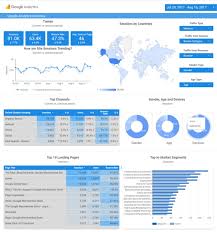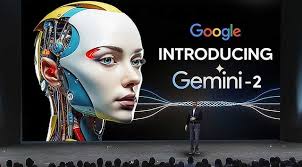Grok 3 Model Explained
Grok 3 Model Explained: Everything You Need to Know xAI has introduced its latest large language model (LLM), Grok 3, expanding its capabilities with advanced reasoning, knowledge retrieval, and text summarization. In the competitive landscape of generative AI (GenAI), LLMs and their chatbot services have become essential tools for users and organizations. While OpenAI’s ChatGPT (powered by the GPT series) pioneered the modern GenAI era, alternatives like Anthropic’s Claude, Google Gemini, and now Grok (developed by Elon Musk’s xAI) offer diverse choices. The term grok originates from Robert Heinlein’s 1961 sci-fi novel Stranger in a Strange Land, meaning to deeply understand something. Grok is closely tied to X (formerly Twitter), where it serves as an integrated AI chatbot, though it’s also available on other platforms. What Is Grok 3? Grok 3 is xAI’s latest LLM, announced on February 17, 2025, in a live stream featuring CEO Elon Musk and the engineering team. Musk, known for founding Tesla, SpaceX, and acquiring Twitter (now X), launched xAI on March 9, 2023, with the mission to “understand the universe.” Grok 3 is the third iteration of the model, built using Rust and Python. Unlike Grok 1 (partially open-sourced under Apache 2.0), Grok 3 is proprietary. Key Innovations in Grok 3 Grok 3 excels in advanced reasoning, positioning it as a strong competitor against models like OpenAI’s o3 and DeepSeek-R1. What Can Grok 3 Do? Grok 3 operates in two core modes: 1. Think Mode 2. DeepSearch Mode Core Capabilities ✔ Advanced Reasoning – Multi-step problem-solving with self-correction.✔ Content Summarization – Text, images, and video summaries.✔ Text Generation – Human-like writing for various use cases.✔ Knowledge Retrieval – Accesses real-time web data (especially in DeepSearch mode).✔ Mathematics – Strong performance on benchmarks like AIME 2024.✔ Coding – Writes, debugs, and optimizes code.✔ Voice Mode – Supports spoken responses. Previous Grok Versions Model Release Date Key Features Grok 1 Nov. 3, 2023 Humorous, personality-driven responses. Grok 1.5 Mar. 28, 2024 Expanded context (128K tokens), better problem-solving. Grok 1.5V Apr. 12, 2024 First multimodal version (image understanding). Grok 2 Aug. 14, 2024 Full multimodal support, image generation via Black Forest Labs’ FLUX. Grok 3 vs. GPT-4o vs. DeepSeek-R1 Feature Grok 3 GPT-4o DeepSeek-R1 Release Date Feb. 17, 2025 May 24, 2024 Jan. 20, 2025 Developer xAI (USA) OpenAI (USA) DeepSeek (China) Reasoning Advanced (Think mode) Limited Strong Real-Time Data DeepSearch (web access) Training data cutoff Training data cutoff License Proprietary Proprietary Open-source Coding (LiveCodeBench) 79.4 72.9 64.3 Math (AIME 2024) 99.3 87.3 79.8 How to Use Grok 3 1. On X (Twitter) 2. Grok.com 3. Mobile App (iOS/Android) Same subscription options as Grok.com. 4. API (Coming Soon) No confirmed release date yet. Final Thoughts Grok 3 is a powerful reasoning-focused LLM with real-time search capabilities, making it a strong alternative to GPT-4o and DeepSeek-R1. With its DeepSearch and Think modes, it offers advanced problem-solving beyond traditional chatbots. Will it surpass OpenAI and DeepSeek? Only time—and benchmarks—will tell. Like Related Posts Salesforce OEM AppExchange Expanding its reach beyond CRM, Salesforce.com has launched a new service called AppExchange OEM Edition, aimed at non-CRM service providers. Read more The Salesforce Story In Marc Benioff’s own words How did salesforce.com grow from a start up in a rented apartment into the world’s Read more Salesforce Jigsaw Salesforce.com, a prominent figure in cloud computing, has finalized a deal to acquire Jigsaw, a wiki-style business contact database, for Read more Service Cloud with AI-Driven Intelligence Salesforce Enhances Service Cloud with AI-Driven Intelligence Engine Data science and analytics are rapidly becoming standard features in enterprise applications, Read more

















